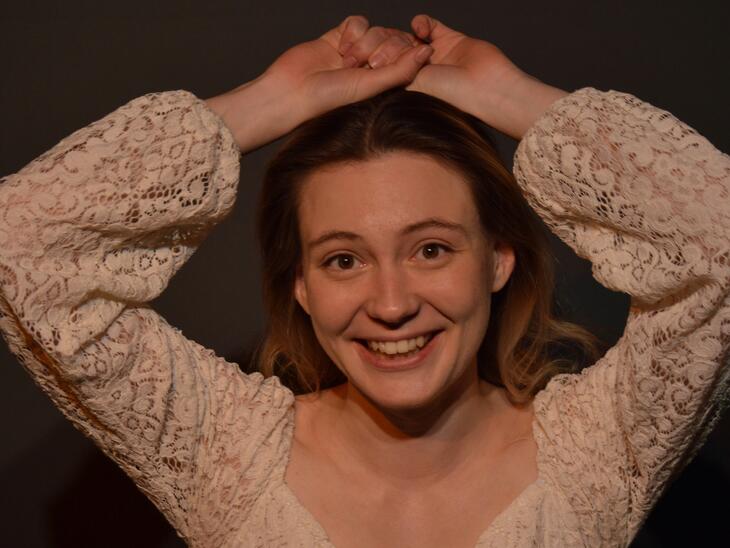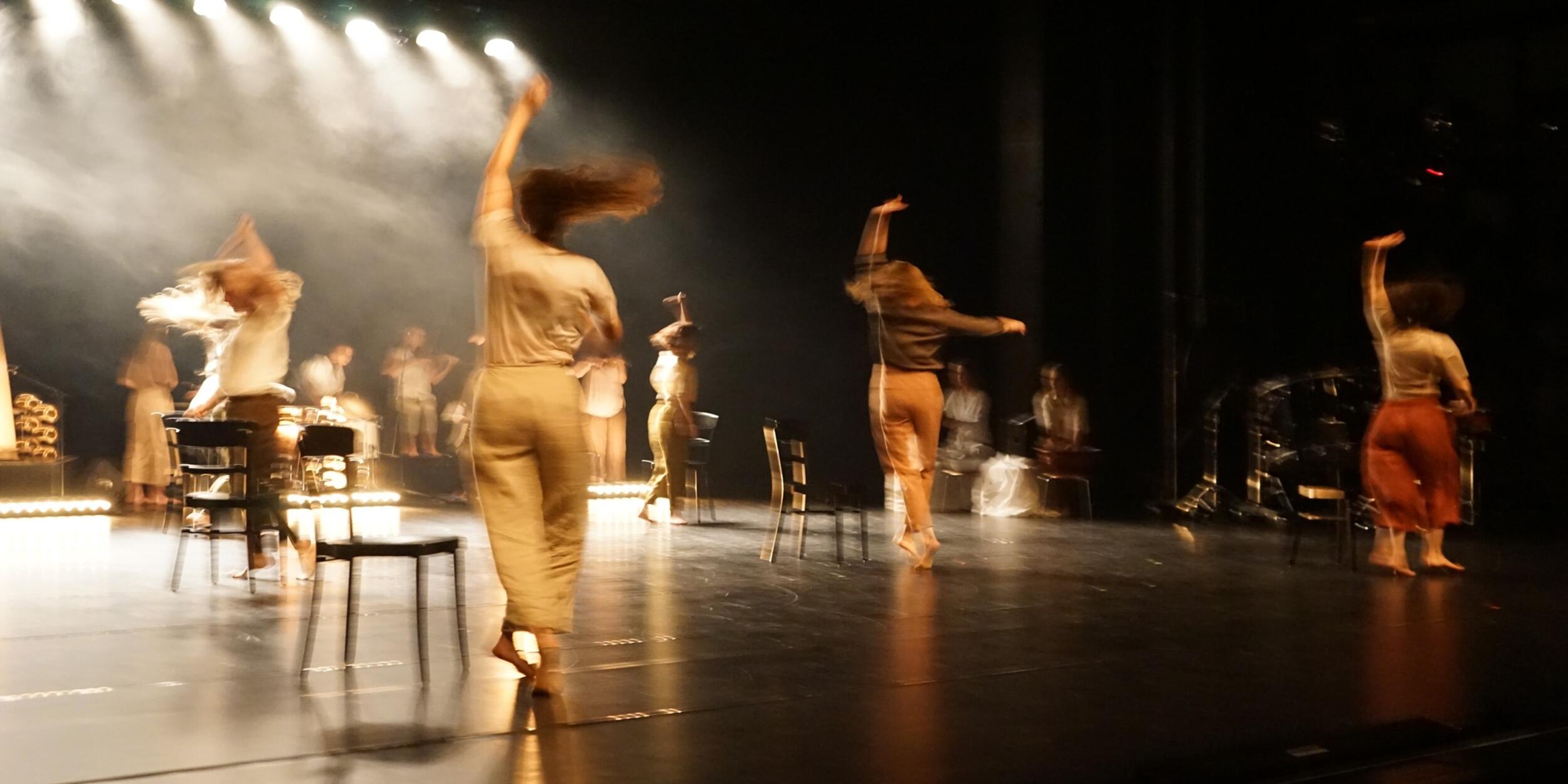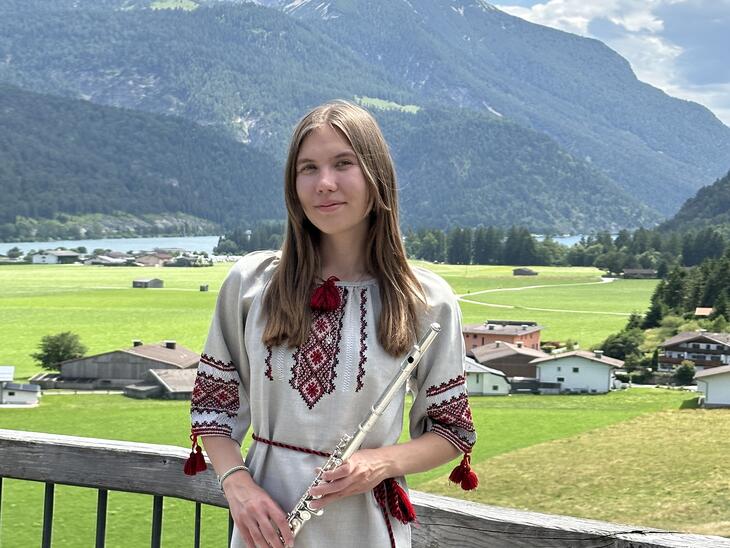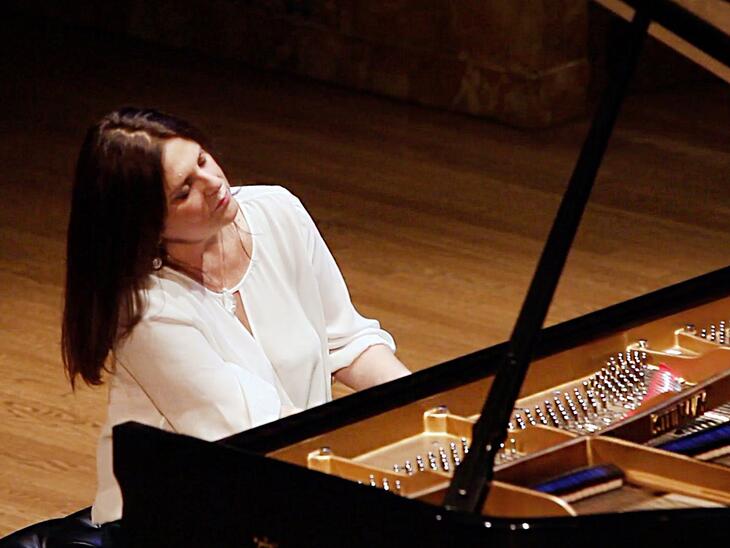hat do you do for a living? What does your "everyday working life" look like?
I studied music and dance education with a focus on social work and integrative education at the Orff Institute. Fortunately, I got a job at the College for Social Pedagogy in Graz straight after my studies. I was lucky that the director was not looking for conventional school musicians. The Orff Institute is well-known and the holistic method was preferred. I started with the subjects of music education and rhythmic-musical education. I now also give instrumental lessons with guitar, i.e. small group lessons.
With the college, I have found a field of work that absolutely emphasizes the artistic-creative orientation. The focus is just as practice-oriented as it is musically creative. These two components are the core elements, with a lot of handicrafts, visual education and musical subjects. I was welcomed with open arms, was able to get involved and was allowed to work freely. I really have the feeling that I can continue what I already enjoyed during my studies.
What is the best thing about your job? What opportunities does it open up?
I particularly like the integrative approach. Not having to choose between instrument and dance or artistic areas, I liked the holistic approach. I didn't even know that the Orff Institute existed until I was 18 or 19. When I came across it, I was thrilled! The movement, the dance, the stage, performance and the music of course - being able to integrate all of that is great. I also had the feeling that this was important to my colleagues, even though they were all looking for their own niche. I recently met my fellow students in Salzburg (laughs). I was certainly one of those who specifically sought out the integrating and connecting aspects. I was passionate about interdisciplinary areas and interdisciplinary projects. That appealed to me back then and it's exactly what I appreciate so much about my current job. Just yesterday we had project presentations at the college with insanely creative ideas. We go out and work with underage refugees, but also with senior citizens. It's a wide and wonderful range.
Which groups of people do you teach?
My students are prospective teachers aged 18 and over. However, we also have older students on part-time courses and a day college. Our college now offers two courses, namely elementary education and social pedagogy. In elementary education, graduates work in crèches and kindergartens. Graduates in social pedagogy use their training to work in a broad spectrum of social pedagogy, in child and youth care facilities, with people with disabilities and in employment support projects.
What do art, music and dance mean to you?
These subjects are of central importance to me. I am always very sad when the artistic-creative subjects are dismissed as marginal subjects or even dispensable appendages. Unfortunately, I am currently experiencing this at my daughter's primary school. In the creative arts lies this
creative power that we need for all areas of our lives. I keep realizing how much it is missing when someone doesn't have this integrating insight. This became even clearer during corona. I see it as a huge task to bring sensitivity into the classroom. Digitalization means the need is even greater. When people talk about supposed media literacy, it is usually not about the competent use of media, but about the consumption of media and here we should actually return to the musical-creative, to the ability to perceive. It's about questions like: What happens in the real world and what happens in the digital world? When is it better to switch off the screen? What defines me as a person? What is my social interaction ability, my expression? The musical aspect is intended to meet the sensual need for expression that all people have. It is also about topics such as resilience, coping with stress, balance and a fulfilling everyday life.
What challenges do (young) artists face in your field?
Our field is still struggling for recognition, not least financial recognition. We are a niche program in Austria and our work is unfortunately not adequately remunerated. We have to complete the same length of training as other educators and yet we are not paid the same. There are inequalities here. In my personal professional work, I have experienced a great deal of appreciation and gratitude, but this is not reflected financially. In addition, we are not allowed to teach at all schools, such as elementary school. However, this problem also exists with other music education courses.
Young music and dance teachers also have to come to terms with what it means to "work as a teacher" and in which regulated fields the profession also works. A classic area is the music school and it depends in which environment you end up. There are very good music schools that show appreciation and also pay well. Unfortunately, there are also those that differentiate between "first lessons" and "real music lessons" and show less appreciation for our area. Pure group lessons are also very strenuous and difficult to cope with in the long term. In any case, there is a broad field. Working in teacher training, in my case in the field of social and elementary education, is a great opportunity and I find it very exciting. I have the feeling that I can pass something on. Ultimately, we train multipliers.
What was your experience of training at the Orff Institute?
I was lucky enough to be able to take a lot with me. The instrumental lessons, the individual lessons and the voice training were important for me. The additional instrument, dance, yoga and Feldenkrais courses were particularly valuable. As already mentioned, the interdisciplinary projects played a special role for me. It was often a balancing act between lots of fresh input from outside and the core disciplines. In addition, the social component of our work was very valuable - creating something together, experiencing how the different skills and approaches of the participants can intertwine in a creative design process and opening up paths in this process that you would never have discovered on your own. The experience of being able to try things out within a wide creative scope was wonderful. Finally, the very broad-based internship groups at the Orff Institute were also a great resource.
What advice would you like to give young creative people?
I still see this course of study as a great opportunity and I think it's great that this professional field exists, that it can continue to expand and establish itself. For me, it is a great playing field to live out my own creativity and enthusiasm. Last but not least, working together with other people and the educational aspect are wonderful. I can remember my fellow students saying that they no longer had any hobbies, because all their hobbies had become professions (laughs). That is a great gift. Studying and having a job where you can do things you like is a gift.
What would you like to see in the future, apart from greater recognition of your subject?
Greater visibility of this diverse course of study in all its breadth. I feel lucky to be able to live like this and hope that the course will continue to exist in this way.




